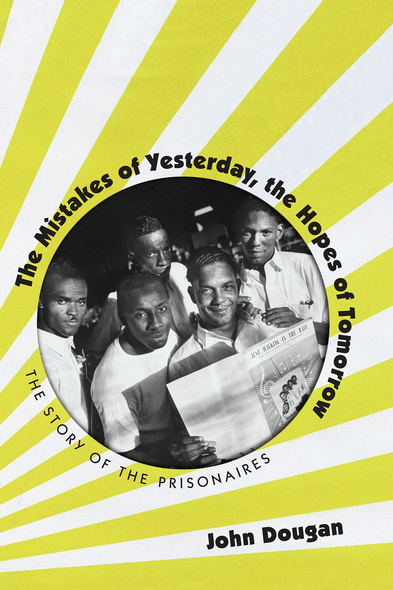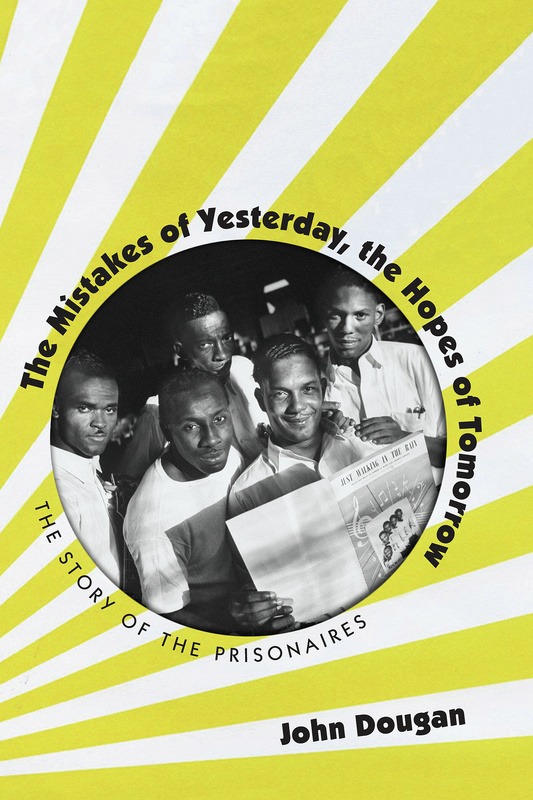Our shopping cart is currently down. To place an order, please contact our distributor, UTP Distribution, directly at utpbooks@utpress.utoronto.ca.
The Mistakes of Yesterday, the Hopes of Tomorrow
The Story of the Prisonaires
By John Dougan
SERIES:
American Popular Music
University of Massachusetts Press
Early in the morning on June 1, 1953, five African American men boarded a van to make the 200-mile trip from Nashville to Memphis for a daylong recording session at the legendary Sun Studios, to be overseen by Sun founder Sam Phillips. One of the two tracks cut that day, "Just Walkin' in the Rain," would go on to become a regional R&B hit, Sun Records' biggest record of the pre-Elvis era. It would, however, be the group's only hit. They were the Prisonaires, a vocal quintet who had honed their skills while inmates at the Tennessee State Penitentiary in Nashville.
In this book, John Dougan tells the story of the Prisonaires, their hit single, and the afterlife of this one remarkable song. The group and the song itself represent a compelling concept: imprisoned men using music as a means of cultural and personal survival. The song was re-recorded by white singer Johnnie Ray, who made it a huge hit in 1956. Over the years, other singers and groups would move the song further away from its origins, recasting the deep emotions that came from creating music in a hostile, controlled environment.
The story of the Prisonaires, for all of its triumphs, reflects the disappointment of men caught in a paradoxical search for personal independence while fully cognizant of a future consigned to prison. Their brief career and the unusual circumstances under which it flourished sheds light on the harsh realities of race relations in the pre–Civil Rights South. The book also provides a portrait of Nashville just as it was gaining traction as a nationally recognized music center.
In this book, John Dougan tells the story of the Prisonaires, their hit single, and the afterlife of this one remarkable song. The group and the song itself represent a compelling concept: imprisoned men using music as a means of cultural and personal survival. The song was re-recorded by white singer Johnnie Ray, who made it a huge hit in 1956. Over the years, other singers and groups would move the song further away from its origins, recasting the deep emotions that came from creating music in a hostile, controlled environment.
The story of the Prisonaires, for all of its triumphs, reflects the disappointment of men caught in a paradoxical search for personal independence while fully cognizant of a future consigned to prison. Their brief career and the unusual circumstances under which it flourished sheds light on the harsh realities of race relations in the pre–Civil Rights South. The book also provides a portrait of Nashville just as it was gaining traction as a nationally recognized music center.
With sophistication and nuance, Dougan demonstrates that the Prisonaires' story is also the story of the American racial obsession, of the judicial system, of the architecture of the prison itself. He also manages to show how, if one listens carefully to the Prisonaires (or any of the subsequent music influenced by them), these subjects are there, in the musical mix itself, all the time. You can hear them, if you know how to listen. And Dougan knows how to teach us to listen.'—Rachel Rubin, coeditor of American Popular Music: New Approaches to the Twentieth Century
'An in-depth analysis of the brief career of Sun Records' pre-Elvis one-hit wonders and Tennessee State Penitentiary residents, Mistakes stands at the intersection of musicology and penology, a document of the collision of the music and penal industries in postwar, pre-civil rights-era Music City. It's a story—masterfully researched, richly detailed and lovingly told—hinged on one of the most iconic close-harmony songs in pop history.'—Nashville Scene
'Dougan does a good job of providing the story of the Prisonaires including a good account of Nashville, the penal system of Tennessee, the musical environments of Nashville and Memphis, and the general condition of blacks in pre- and post-war Nashville.'—The Common Reader
John Dougan is professor of music business and popular music studies in the Department of Recording Industry at Middle Tennessee State University and author of The Who Sell Out.





